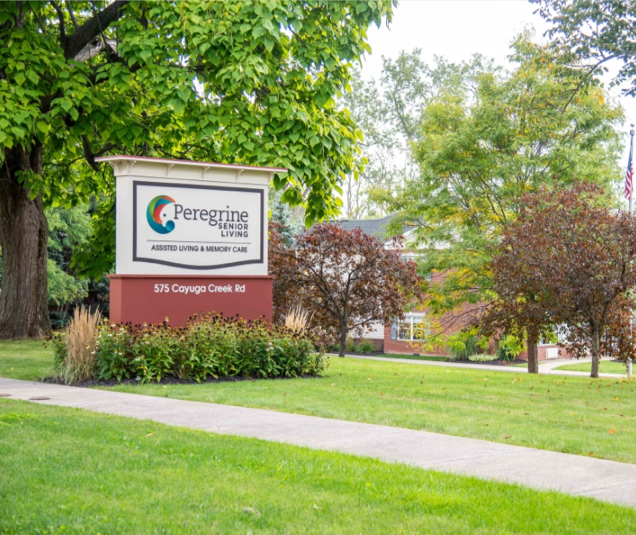Caring for elderly or ill parents can feel like a full-time job—even when you already have one. From managing appointments and medications to juggling emotional needs, the responsibilities stack up fast. When that invisible checklist in your mind keeps growing and you rarely feel “off duty,” you may be experiencing mental load and caregiver burnout.
Mental load refers to the constant emotional and cognitive effort of managing tasks for others—and it can take a serious toll on your well-being. Fortunately, support options like assisted living communities and respite care services can help ease this burden and give family caregivers the breathing room they need.
You can also ease the pressure by setting clear boundaries, asking for help, prioritizing self-care, creating a consistent routine, and tapping into community resources.
If you’ve been thinking, “My aging parents give me too much mental load,” you’re not alone. Understanding why this happens, along with the signs of caregiver burnout, will allow you to find balance and protect your mental health.
Understanding Mental Load & Caregiver Burnout
Mental load is more than physical exhaustion. It also includes the emotional and logistical weight of being the one who remembers everything—doctor visits, medication refills, dietary restrictions, safety concerns, and even small things like who’s bringing the birthday cake.
Caregiver burnout, on the other hand, is the physical, emotional, and mental exhaustion that builds over time. When your responsibilities outweigh your ability to rest, cope, or find support, burnout can feel inevitable.
Common signs of burnout include:
- Persistent fatigue, even after sleep
- Feeling irritable or emotionally numb
- Withdrawing from friends or activities
- Trouble concentrating or making decisions
- Physical symptoms like headaches or sleep issues
Why the Mental Load Builds Up
Caregiving often begins with love and good intentions, however, without support, the emotional and logistical demands involved can quietly build into burnout. Common contributors to mental load include all or some of the following:
- You’re emotionally overwhelmed: Watching your parents decline can trigger grief, guilt, and anxiety about the future.
- You’re the default caregiver: One person often shoulders most of the care, especially if others are distant or uninvolved.
- Time feels non-existent: Appointments, errands, and check-ins leave little time for rest, hobbies, or your own health.
- Financial pressure is high: Covering care-related costs adds strain—especially if you’re also raising a family or working.
- Boundaries are unclear: Saying yes to every request can lead to resentment, exhaustion, and burnout.
How to Manage Mental Load & Find Relief
While you may not be able to change your circumstances overnight, there are steps you can take to ease the pressure and reclaim your peace of mind.
Look Into Respite Care
Respite care offers temporary support, whether for a few hours a week or several days. It gives you time to recharge while knowing your loved one is safe and cared for.
Respite care options can include:
- Short-term stays at an assisted living community
- In-home care by a professional caregiver
- Adult day programs in your community
Even brief breaks can prevent burnout and help you return to caregiving with more energy and perspective.
Communicate & Ask for Help
You don’t need to do it all alone. Reach out to siblings, cousins, family friends, or neighbors. Some may be able to assist with transportation, errands, or check-ins.
If others aren’t stepping up, express your needs clearly:
“I’m feeling overwhelmed with Mom’s care. Can you take her to her next appointment or pick up her prescriptions this week?”
People are more likely to help when given specific tasks.
Set Healthy Boundaries
Many adult children feel guilty saying no—but boundaries are essential. Decide what you realistically can (and cannot) take on, then communicate it with honesty and compassion.
Try statements like:
- “I can come over Tuesdays and Thursdays, but not every day.”
- “I’m happy to help with finances, but I can’t manage daily medication reminders.”
Boundaries protect your energy and prevent long-term resentment.
Care for Your Own Well-Being
When you’re focused on someone else 24/7, your own health can suffer. Don’t skip meals, sleep, or appointments. Incorporate small acts of self-care into your day—whether that’s a short walk, journaling, or listening to music while making dinner.
If stress feels unmanageable, consider support groups or therapy. Caregiver support groups can provide validation and practical tips from people in similar roles.
Explore Long-Term Care Options
If daily care is affecting your health or relationships, it may be time to consider long-term care. Assisted living communities can provide your loved one with consistent support while giving you peace of mind.
These communities offer:
- Help with daily tasks like bathing and medication
- Social opportunities to reduce isolation
- On-site healthcare and wellness services
Visiting a senior living community can help you evaluate whether it’s the right fit—either now or in the future.
Get Financially Organized
The financial side of caregiving can be stressful. Work with a financial advisor to plan for:
- Long-term care insurance
- Home modifications
- Out-of-pocket healthcare expenses
- Medicaid or Veterans Affairs benefits if eligible
Having a financial plan can reduce surprises and make decision-making easier.
Release Resentment
Feeling frustrated or resentful is common, especially if your life feels consumed by caregiving. But holding onto those emotions can make things harder.
Practice self-compassion. You are not a bad person for needing space or wanting help. Talk to a counselor, write in a journal, or give yourself permission to grieve the changes in your life.
Letting go of guilt doesn’t mean you stop caring—it means you’re caring for yourself, too.

What to Do If You Feel Trapped
If caregiving is affecting your mental health, relationships, or career, don’t wait for a crisis to make a change. You deserve to feel supported, not stuck.
Start by:
- Researching assisted living or in-home care options
- Having honest conversations with your loved ones
- Prioritizing time for yourself without guilt
You may not be able to delegate everything, but you can shift the balance so you’re not carrying it all alone.
Support Is Closer Than You Think
If your mental load feels overwhelming, you don’t have to carry it alone. At Peregrine Senior Living at Cheektowaga, we offer more than just care—we provide peace of mind. Whether you’re seeking short-term respite care or exploring a long-term solution, our community is designed to support both residents and their families.
From comfort-focused amenities like cozy private suites, chef-prepared meals, and beautifully landscaped outdoor spaces to enriching activities and 24/7 professional care, we make it easier for your loved one to thrive—and for you to breathe a little easier.
Schedule a visit today to see how Peregrine at Cheektowaga can help lighten your load and bring balance back into your life.












The past week has been full of meaningful moments and fun at Peregrine!
We were grateful to have Anna VanDien from Hospice join us for a thoughtful and informative presentation on grief, offering support and valuable insight to our residents.
Our Drumstick Workout Group continues to grow bigger by the day.
Cyndi, our Dietary Director, hosted her Culinary Classroom, where she demonstrated how to make a crunchy ramen noodle salad. It was absolutely delicious, and residents are already talking about enjoying it again with a meal!
It’s been an active and engaging week over at Peregrine! ... See MoreSee Less
0 CommentsComment on Facebook
Grab a Super Bowl square before the game! Half of the proceeds go to the Alzheimer's Association. Comment what number you'd like and we will message you! ... See MoreSee Less
3 CommentsComment on Facebook
Today, our beautiful resident, Irene, celebrated an incredible milestone—101 years young!
We wish her nothing but the very best in the year ahead, filled with happiness, laughter, and cherished moments. ... See MoreSee Less
5 CommentsComment on Facebook
Today is National Compliment Day! It’s a reminder to share encouragement and appreciation freely. Remember, it costs nothing to be kind, but the impact of a thoughtful word can last a lifetime!
Tell a friend they make you smile. Thank a caregiver for their dedication. Compliment a resident on their sense of humor or style. 😁
We’ve seen how positivity strengthens bonds and brightens spirits. Let’s make today—and every day—a little kinder.
peregrinecheektowaga.com/ ... See MoreSee Less
0 CommentsComment on Facebook
We enjoyed making tie snowflake pillows this week! ... See MoreSee Less
1 CommentsComment on Facebook
We enjoyed making chocolate-covered popcorn today for National Popcorn Day! It is just as delicious as it looks! ... See MoreSee Less
1 CommentsComment on Facebook
Today, we honor the life and legacy of Dr. Martin Luther King Jr.—a leader whose message of equality, compassion, and courage continues to inspire us all.
His dream reminds us that even small acts of kindness can ripple outward and create lasting change.
May we carry his vision forward by leading with empathy, listening with understanding, and building communities grounded in love and unity.
peregrinecheektowaga.com/ ... See MoreSee Less
0 CommentsComment on Facebook